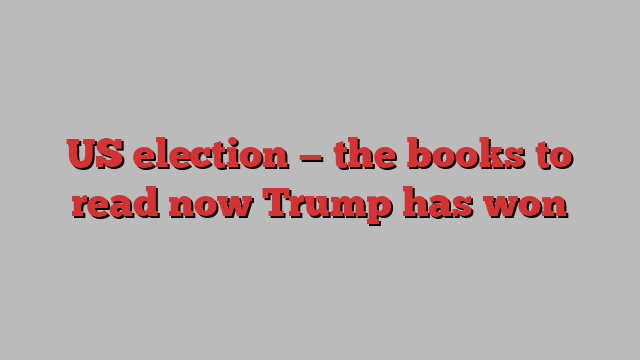
Unlock the White House Watch newsletter for free
Your guide to what the 2024 US election means for Washington and the world
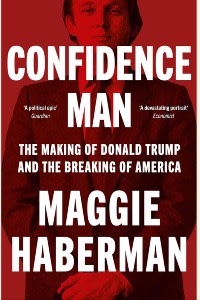
Confidence Man: The Making of Donald Trump and the Breaking of America
by Maggie Haberman
During the Trump presidency, Haberman of the New York Times established herself as the leading Trump-watcher — managing to report unsparingly on the president, while maintaining a relationship with him. Here, she delivers the definitive biography of Trump and his improbable rise from real estate mogul and television personality to president. Her deep understanding of the New York of the 1970s and 1980s helps to explain what makes Trump tick.
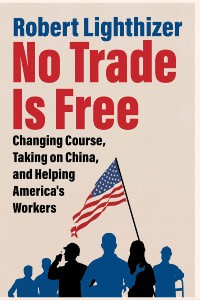
No Trade Is Free: Changing Course, Taking on China, and Helping America’s Workers
by Robert Lighthizer
Lighthizer served as US trade representative during Donald Trump’s first term when America slapped tariffs on China in a move that called time on the post-1945 geoeconomic order. That hawkish stance towards Beijing continued under Joe Biden and is now set to escalate in Trump’s second term, in which Lighthizer is widely tipped as a possible future treasury secretary. His book, published in 2023, seeks to explain the rationale behind the policy stance, arguing that America’s original greatness was “built behind a wall of protection and often with government money”. In her FT review Rana Foroohar noted that while many will disagree with the economics of his arguments about the need to rebalance the US trade deficit, “his arguments about the need for a large diversified economy like the US to produce as well as consume in order to remain strong resonate in an era in which the risks of financialisation and fragile global supply chains have become all too clear”.
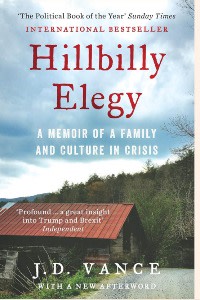
Hillbilly Elegy: A Memoir of a Family and Culture in Crisis
by JD Vance
Vance’s searing memoir of growing up in the poverty of Appalachia struck a huge chord when it was published in 2016, just months away from the presidential election victory that first took Donald Trump to the White House. His book revealed an often-overlooked world of white America that was to become a national electoral force. As Edward Luce wrote in his FT review, “Vance holds up a painfully honest mirror to America that offers no succour to left or right. Every group is a victim.” Eight years later Vance, who served as a Marine, attended Yale Law school and was elected to the US Senate, is now vice-president elect. As a candidate he subtly departed from the message of Hillbilly Elegy — no longer emphasising the social pathologies in the culture he describes, embracing instead a Maga message that portrays the “Hillbillies” as victims of globalism and the liberal elite.
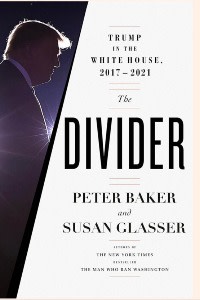
The Divider: Trump in the White House, 2017-2021
by Peter Baker and Susan Glasser
With Trump now set to return to the White House, this book is a useful reminder of the “cartoonish chaos” of his first term in office. Drawing on testimony from appalled and disillusioned former Trump officials, two journalists paint a portrait of a dangerous and dysfunctional presidency. The account of Trump’s efforts to cling on to power, after losing the 2020 election, is particularly vivid and revelatory.
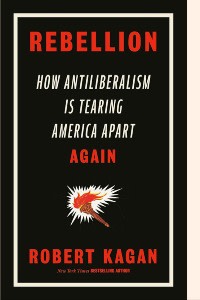
Rebellion: How Antiliberalism Is Tearing America Apart — Again
by Robert Kagan
A brilliant analyst and polemicist, Kagan argues that the 2024 presidential election could be the last free election held in a unified United States. He justifies this dire warning with a detailed account of the right’s drift towards authoritarianism — and traces the historical roots of Donald Trump’s appeal to a long tradition of anti-liberal thought in the US.
Imagining Trump 2.0: six scary policy scenarios for a second term
by Célia Belin, Majda Ruge and Jeremy Shapiro
What will a second Trump presidency mean for the world? In a detailed examination of the new “Republican foreign policy ecosystem”, analysts from the European Council on Foreign Relations imagine six scenarios for US foreign policy. These range from engineering a peace deal in Ukraine to the South China Sea which could see the shifting of military resources from Europe to the Indo-Pacific region. Other areas of concern include the future of Nato, strategic industrial policy, the Middle East and the emergence of an “illiberal internationale”. While the authors note that none of the “scary” scenarios is inevitable, “they are all derived from Republican ideas and are at least plausible”. Europeans, they write, have been woefully slow to prepare.
Join our online book group on Facebook at FT Books Café and subscribe to our podcast Life and Art wherever you listen